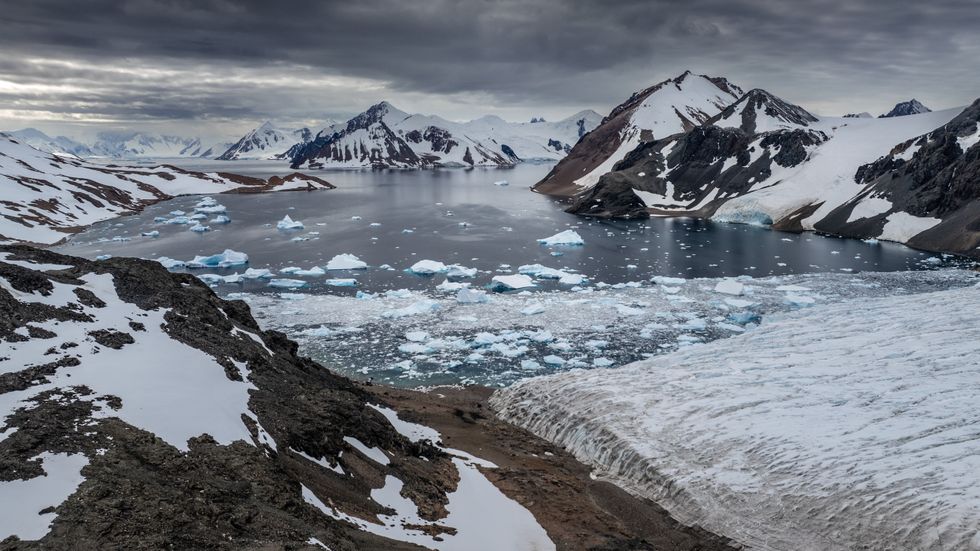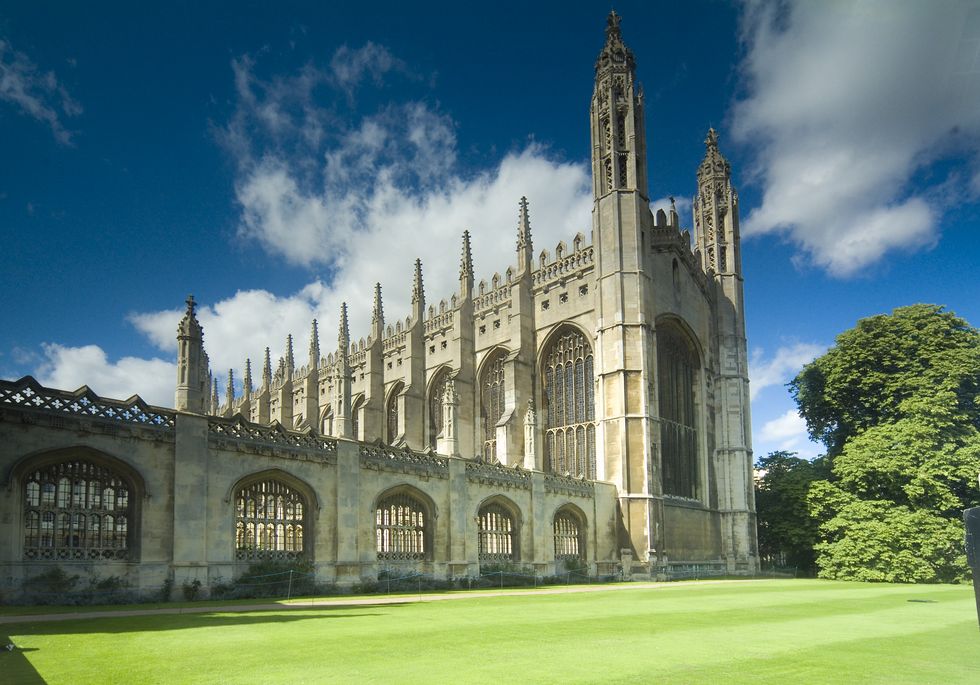WATCH NOW: Shakespeare branded a 'white supremacist' by Shakespeare's birthplace trust
GB News
The region is infamously uninhabitable
Don't Miss
Most Read
Trending on GB News
A world-class university has claimed that Britain’s South Pole exploration was “colonial” although no one actually lived there.
The University of Cambridge’s Polar Museum tells the story of the explorers of the Arctic and the Antarctic but accompanies its exhibit with the caveat that the expedition was conducted in the “colonial mould”.
They argue this was the case because the pioneering expedition included “claiming land, mapping, prospecting for resources, even sending stamps as a sign of ownership”.
The museum has personal artefacts on show that used to belong to the pioneers of the Heroic Age of Antarctic exploration.

The region is infamously uninhabitable
GETTY
However, the narrative pushed throughout the exhibition was that of colonialism and is part of a collection which aims to “confront Cambridge’s colonial story”.
The signage welcomes visitors, which reads: “The colonised Antarctic? At the beginning of the 20th century little was known about Antarctica.
“This set the stage for a number of famous expeditions to reach the South Pole.
“At the same time, these expeditions were in the colonial mould – claiming land, mapping, prospecting for resources, even sending stamps as a sign of ownership.
LATEST WOKE MADNESS:
“The only difference was that there was not an indigenous population in Antarctica.”
There are neither towns nor cities on the isolated island as it is deemed uninhabitable for humans. Experts suggest its distance, climate, and weather was unsuited for primitive peoples.
But, in 1820, two groups of researchers embarked on a life-threatening expedition to observe ice shelves and analyse the snow-capped mountains.
Although the British exploration started three days after the Russians set off, much debate has swirled over who discovered the region first.

The world-class university has recently accused one of Britain’s greatest minds of being entangled in racial injustice
GETTY
The Cambridge controversy follows another recent instance where the world-class university accused one of Britain’s greatest minds of being entangled in racial injustice.
The university sparked fury over its claims that Professor Stephen Hawking’s research benefited from the slave trade.
In an exhibition called Rise Up, the institution’s Fitzwilliam Museum provides information spanning across abolition movements, rebellions as well as today’s “racist injustices”.
Other accusations have been thrown at the son of British naturalist Charles Darwin for being backed by investments in slavery.
GB News has approached the University of Cambridge and its Scott Polar Research Institute for comment.







